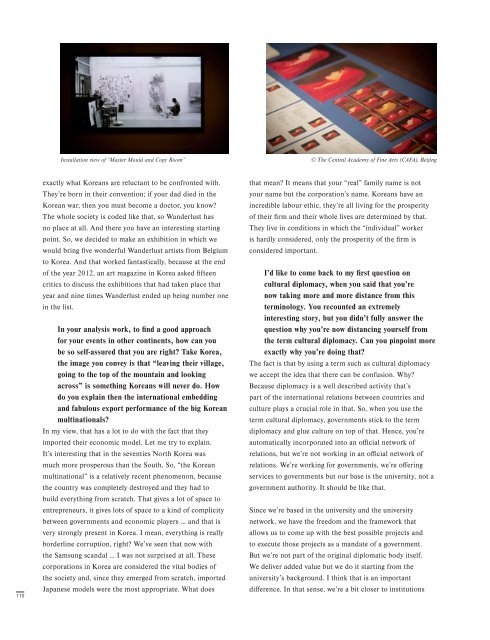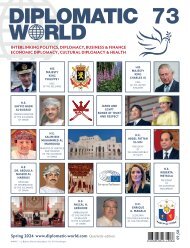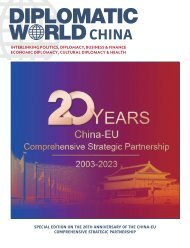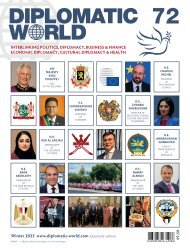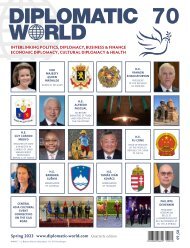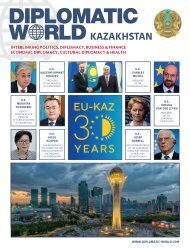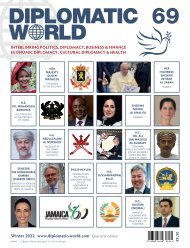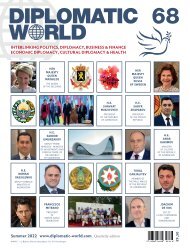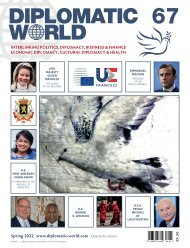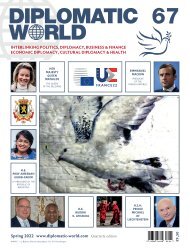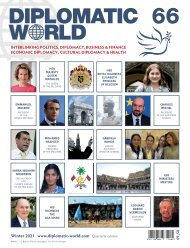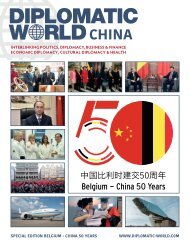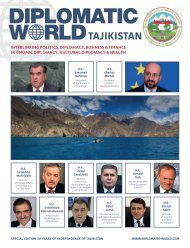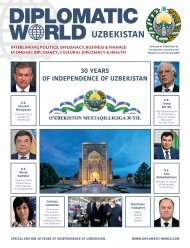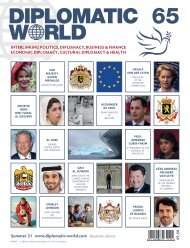You also want an ePaper? Increase the reach of your titles
YUMPU automatically turns print PDFs into web optimized ePapers that Google loves.
Installation view of “Master Mould and Copy Room”<br />
© The Central Academy of Fine Arts (CAFA), Beijing<br />
110<br />
exactly what Koreans are reluctant to be confronted with.<br />
They’re born in their convention; if your dad died in the<br />
Korean war, then you must become a doctor, you know?<br />
The whole society is coded like that, so Wanderlust has<br />
no place at all. And there you have an interesting starting<br />
point. So, we decided to make an exhibition in which we<br />
would bring five wonderful Wanderlust artists from Belgium<br />
to Korea. And that worked fantastically, because at the end<br />
of the year 2012, an art magazine in Korea asked fifteen<br />
critics to discuss the exhibitions that had taken place that<br />
year and nine times Wanderlust ended up being number one<br />
in the list.<br />
In your analysis work, to find a good approach<br />
for your events in other continents, how can you<br />
be so self-assured that you are right? Take Korea,<br />
the image you convey is that “leaving their village,<br />
going to the top of the mountain and looking<br />
across” is something Koreans will never do. How<br />
do you explain then the international embedding<br />
and fabulous export performance of the big Korean<br />
multinationals?<br />
In my view, that has a lot to do with the fact that they<br />
imported their economic model. Let me try to explain.<br />
It’s interesting that in the seventies North Korea was<br />
much more prosperous than the South. So, “the Korean<br />
multinational” is a relatively recent phenomenon, because<br />
the country was completely destroyed and they had to<br />
build everything from scratch. That gives a lot of space to<br />
entrepreneurs, it gives lots of space to a kind of complicity<br />
between governments and economic players … and that is<br />
very strongly present in Korea. I mean, everything is really<br />
borderline corruption, right? We’ve seen that now with<br />
the Samsung scandal … I was not surprised at all. These<br />
corporations in Korea are considered the vital bodies of<br />
the society and, since they emerged from scratch, imported<br />
Japanese models were the most appropriate. What does<br />
that mean? It means that your “real” family name is not<br />
your name but the corporation’s name. Koreans have an<br />
incredible labour ethic, they’re all living for the prosperity<br />
of their firm and their whole lives are determined by that.<br />
They live in conditions in which the “individual” worker<br />
is hardly considered, only the prosperity of the firm is<br />
considered important.<br />
I’d like to come back to my first question on<br />
cultural diplomacy, when you said that you’re<br />
now taking more and more distance from this<br />
terminology. You recounted an extremely<br />
interesting story, but you didn’t fully answer the<br />
question why you’re now distancing yourself from<br />
the term cultural diplomacy. Can you pinpoint more<br />
exactly why you’re doing that?<br />
The fact is that by using a term such as cultural diplomacy<br />
we accept the idea that there can be confusion. Why?<br />
Because diplomacy is a well described activity that’s<br />
part of the international relations between countries and<br />
culture plays a crucial role in that. So, when you use the<br />
term cultural diplomacy, governments stick to the term<br />
diplomacy and glue culture on top of that. Hence, you’re<br />
automatically incorporated into an official network of<br />
relations, but we’re not working in an official network of<br />
relations. We’re working for governments, we’re offering<br />
services to governments but our base is the university, not a<br />
government authority. It should be like that.<br />
Since we’re based in the university and the university<br />
network, we have the freedom and the framework that<br />
allows us to come up with the best possible projects and<br />
to execute those projects as a mandate of a government.<br />
But we’re not part of the original diplomatic body itself.<br />
We deliver added value but we do it starting from the<br />
university’s background. I think that is an important<br />
difference. In that sense, we’re a bit closer to institutions


